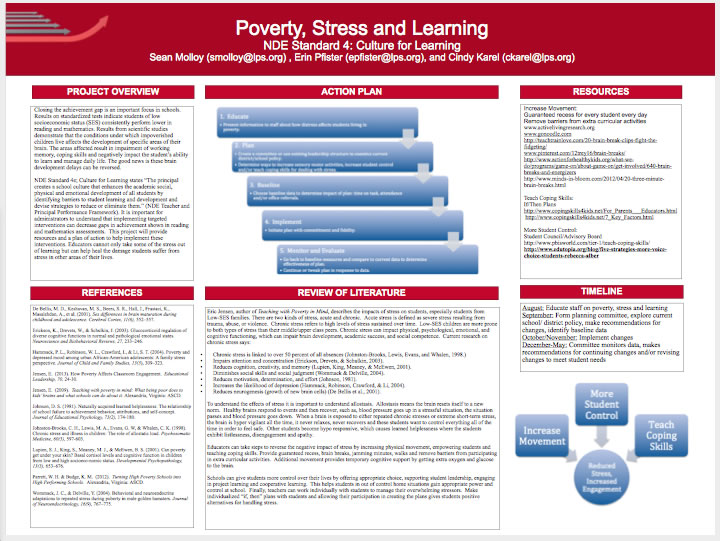Sean Molloy, Erin Pfister, and Cindy Karel
smolloy@lps.org
epfister@lps.org
ckarel@lps.org
Closing the achievement gap is an important focus in schools. Results on standardized tests indicate students of low socioeconomic status (SES) consistently perform lower in reading and mathematics. Results from scientific studies demonstrate that the conditions under which impoverished children live affects the development of specific areas of their brain. The areas affected result in impairment of working memory, coping skills and negatively impact the student’s ability to learn and manage daily life. The good news is these brain development delays can be reversed.
NDE Standard 4e; Culture for Learning states “The principal creates a school culture that enhances the academic social, physical and emotional development of all students by identifying barriers to student learning and development and devise strategies to reduce or eliminate them.” (NDE Teacher and Principal Performance Framework). It is important for administrators to understand that implementing targeted interventions can decrease gaps in achievement shown in reading and mathematics assessments. This project will provide resources and a plan of action to help implement these interventions. Educators cannot only take some of the stress out of learning but can help heal the damage students suffer from stress in other areas of their lives.
